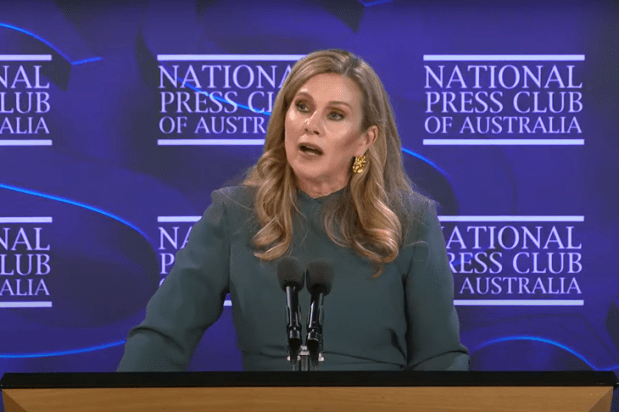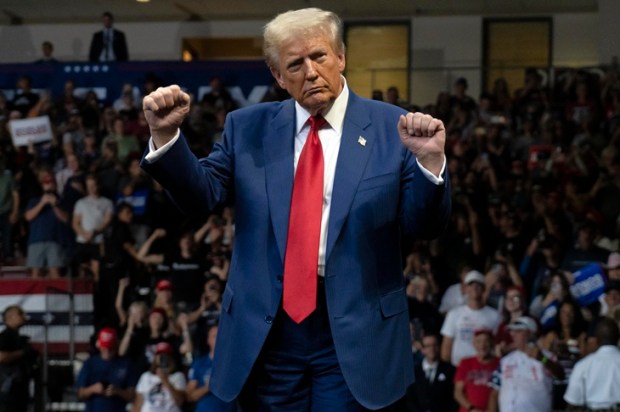On May 10, 2023, Kamala Harris, the Democrat Party Presidential candidate, delivered a speech in the White House to Hispanic Americans. In her speech, she recounted, while chuckling, a family story about her mother saying: ‘I don’t know what’s wrong with you, young people. You think you just fell out of a coconut tree?’ Harris went on to add in a solemn tone, ‘You exist in the context of all in which you live and what came before you.’ Although it is not immediately clear what she meant, the reference to the coconut tree serves as an exhortation to the members of her audience to be involved in activities that improve their lives and benefit their families, society and the country. The choice of a coconut tree as an analogy to support an industrious life is apposite because coconuts are a healthy fruit, and those who inhabit the tree are healthy, and lead active and fulfilling lives.
The coconut tree or Cocos Nucifera is a member of the palm tree family that produces highly nutritious coconuts that have served as the main source of food in Pacific nations for many centuries. Compared to highly processed GMO food, coconuts are organic and healthy. Until they fall from the coconut tree, people are deemed to have pursued a healthy diet. Regardless, Harris’s reference to the coconut tree resulted in the creation of the coconut meme, now a prominent emoji of the Democratic candidate and her supporters. It is thus appropriate to consider whether the high ideals of the coconut tree still dominate American society and influence the views and actions of the two main contenders for the American presidency.
There is a saying that when the United States sneezes, the rest of the world catches cold. In this context, the entire world is watching the American elections and speculates about the possible outcome. Almost every day, people are bombarded with a plethora of popular opinion polls which, invariably, seem to indicate that the election is on a knife’s edge. This frenetic interest in the American election is fuelled, not only by the idiosyncratic characters of the main contenders, but also by the candidates’ views on several topics, including immigration, reproductive rights, the cost of living, foreign affairs, and trade, among others. Regarding trade, according to statistical data, the United States represents 12.7 per cent of the global economy; its exports were 8.5 per cent and imports 13.2 per cent of the global trade. These data reveal that, although these percentages represent trillions of dollars, the world would not necessarily unravel if the United States were to introduce import tariffs on various products, especially manufactured goods. Indeed, the imposition of tariffs may even encourage manufacturers to build their factories in the United States.
The United States has essentially a two-party system, and any independent third-party contender does not stand a chance to be elected. Indeed, this year’s third-party candidate, Robert F. Kennedy Jr, although popular polls revealed that almost 15 per cent of registered voters welcomed his candidacy, had to discontinue his campaign because of dwindling support. He subsequently encouraged his supporters to vote for Donald Trump.
The reports coming out of the United States suggest that the country fell out of the coconut tree and that it has embarked on a slow decline. Mega corporations, a few powerful families, a biased fourth estate, lobbyists, and the Washington bureaucracy – the swamps, as described so colourfully by Trump – have an inordinate influence on American society.
Even a perfunctory review of the present American election campaign reveals that the Republican nominee, Donald Trump, concentrates on domestic issues, such as job growth, low interest rates, housing, and the cost of living. By contrast, Kamala Harris, in addition to exploiting the abortion issue, warns of the demise of democracy if Trump were to win and dabbles in foreign affairs, developing an incoherent view on the Israel-Hamas-Hezbollah conflict. Both political parties strive to convince the electorate of the advantages of voting for their anointed candidate.
Interestingly, in the past 50 years, only three presidents failed to secure a second term: Jimmy Carter, George Bush Senior, and Donald Trump. What the three of them had in common was that they all either did not wage war or lost a war. Based on this observation, one can conclude that war plays a big role in American politics. War is horrendous and those who are directly involved in it suffer immensely. However, the war industry, the production of arms and military equipment, always profits enormously. In his 1935 short book, War is a Racket, Smedley D. Butler notes that during the first world war the American military manufacturers multiplied their revenues in some cases 17-fold. In that war, four million men were enlisted but 35 million pairs of boots were manufactured. The language used in the book does not leave room for imagination:
‘War is a racket. It always has been. It is possibly the oldest, easily the most profitable, surely the most vicious. It is the only one international in scope. It is the only one in which the profits are reckoned in dollars and the losses in lives. […] It is conducted for the benefit of the very few, at the expense of the very many. Out of war a few people make huge fortunes.’
The fact is that the United States is an empire, like the Roman or Persian empires. And as with all empires, America is exporting its influence, through Hollywood, trade, business and petrodollars or, occasionally, through proxy wars. For this same reason, other nations, including its allies, often dislike the United States. However, we need to distinguish between the country and its citizens. Americans are one of the world’s most generous people; they nurture strong family values, they are very proud and open-minded, offer great opportunities for entrepreneurs, and develop thriving businesses. American citizens are always Americans first, while, for example, in Europe, even third-generation immigrants are regarded as foreigners. American politics is based on the premise that people are either for America or against it, and there is no middle ground.
Why are the United States elections so important for Americans? The average American had a mortgage rate of less than 3 per cent during Trump’s first period as President, and today, it is 6.3 per cent (and last year was above 7 per cent). For blue-collar Americans, money in the pocket is an important consideration. Another issue is the uncontrolled inflow of immigrants. America was, and remains, a land of immigrants and, in the past, they entered the United States through Ellis Island. All immigrants brought with them skills, know-how, and eagerness to work. Their industrious attitude contrasts with today’s illegal immigrants who arrive in droves and only care about free housing, free money, and no obligation to work. The ostentatious profligacy and squandering of money, which has contributed to high inflation, and the arrival of illegal immigrants are the two main issues that divide the United States and its two presidential contenders. This division is between those who aspire to contribute to the wealth generated in the coconut tree, and those who prefer to fall out of the tree and become a burden on society.
As Donald Trump is a businessman, he is naturally an efficient decision-maker, and he speaks the common-sense language that ordinary Americans can understand. As a result, many Americans will vote for him because they feel that their candidate understands them. By contrast, Kamala Harris, with her incoherent explanations, hysterical giggling, and absurd comments enjoys the support of the corporate elite and Hollywood and promises nothing. America has certainly become a divided country, with two tribes, the coconut dwellers, and those who fell out of the tree. Surely, Harris’ mother was rightly concerned when she asked Kamala: ‘You think you just fell out of a coconut tree?’
This question is indicative of the stark division in American society. What is more important is that the United States is an empire and a world leader, and half of the world is looking at it as a saviour, especially in today’s political environment in Eastern Europe and the Middle East. Kamala Harris’ ambivalent, incoherent, and contradictory views on the current war in the Middle East, seemingly supporting both Israel and Hamas, indicates that she does not understand world politics, its history and geography. As for Donald Trump, he understands that war is a last resort, and that the destruction of a country’s infrastructure is disastrous because reconstruction is a costly process. Instead, his first term in office suggests that he realises that peace brings trade and commerce and, therefore, profit.
If there is still a modicum of common sense in the United States, Americans will elect Donald Trump as the 47th President of the United States on November 5, 2024, thereby opting for a healthier and vibrant coconut tree.
Gabriël Moens AM is Emeritus Professor of Law at the University of Queensland.
Dejan Hinic is a financial and investment expert operating from Belgrade, Serbia.

























